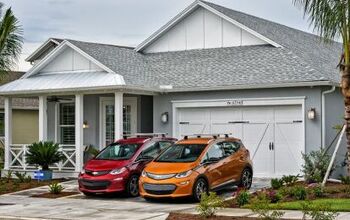Are Electric Cars Really Helping the Environment?
A recent study by the Keck School of Medicine of USC provides new insights into the potential benefits of electric vehicle (EV) adoption. The research, published in the Science of the Total Environment journal, presents the first real-world data linking EVs to reductions in air pollution and respiratory issues. This study marks a significant step in understanding the impact of electric cars on public health and the environment.
Understanding the Impact: Research Methodology
The researchers used multiple data sources to conduct their analysis. They gathered information on the total number of zero-emission vehicles (ZEVs), which include battery electric, plug-in hybrid, and hydrogen fuel cell cars, from the California Department of Motor Vehicles. The team also analyzed air pollution levels, focusing on nitrogen dioxide (NO2), and the rates of asthma-related emergency room visits across various California zip codes from 2013 to 2019.
Findings: Reduced Pollution and Health Risks
The results revealed a clear pattern: As the adoption of ZEVs increased within a zip code, there was a notable decline in local air pollution and asthma-related emergency room visits. Specifically, for every additional 20 ZEVs per 1,000 people, there was a 3.2 percent reduction in the rate of asthma-related emergency visits. Furthermore, the study showed a modest decrease in NO2 levels, a pollutant closely linked to traffic emissions.
Socioeconomic Disparities in ZEV Adoption
However, the study uncovered an adoption gap in ZEVs, with slower uptake in lower-resource areas. This gap highlights a need for policies that promote equitable access to clean transportation, particularly in communities disproportionately affected by pollution and related health issues.
Future Research and Broader Implications
While the study's findings are promising, the researchers acknowledge that more investigation is needed. Future research should explore additional pollutants, other vehicle classes, and broader environmental impacts of ZEVs, including the emissions from their production and disposal.
Conclusion
The study by the Keck School of Medicine of USC offers another case for the adoption of electric vehicles, not just for environmental reasons but also for public health benefits. It underscores the importance of considering local actions in the global fight against climate change and highlights the potential for significant health improvements through technological advancements in transportation.
This article was co-written using AI and was then heavily edited and optimized by our editorial team.
More by TTAC Staff
Latest Car Reviews
Read moreLatest Product Reviews
Read moreRecent Comments
- Probert They already have hybrids, but these won't ever be them as they are built on the modular E-GMP skateboard.
- Justin You guys still looking for that sportbak? I just saw one on the Facebook marketplace in Arizona
- 28-Cars-Later I cannot remember what happens now, but there are whiteblocks in this period which develop a "tick" like sound which indicates they are toast (maybe head gasket?). Ten or so years ago I looked at an '03 or '04 S60 (I forget why) and I brought my Volvo indy along to tell me if it was worth my time - it ticked and that's when I learned this. This XC90 is probably worth about $300 as it sits, not kidding, and it will cost you conservatively $2500 for an engine swap (all the ones I see on car-part.com have north of 130K miles starting at $1,100 and that's not including freight to a shop, shop labor, other internals to do such as timing belt while engine out etc).
- 28-Cars-Later Ford reported it lost $132,000 for each of its 10,000 electric vehicles sold in the first quarter of 2024, according to CNN. The sales were down 20 percent from the first quarter of 2023 and would “drag down earnings for the company overall.”The losses include “hundreds of millions being spent on research and development of the next generation of EVs for Ford. Those investments are years away from paying off.” [if they ever are recouped] Ford is the only major carmaker breaking out EV numbers by themselves. But other marques likely suffer similar losses. https://www.zerohedge.com/political/fords-120000-loss-vehicle-shows-california-ev-goals-are-impossible Given these facts, how did Tesla ever produce anything in volume let alone profit?
- AZFelix Let's forego all of this dilly-dallying with autonomous cars and cut right to the chase and the only real solution.


































Comments
Join the conversation